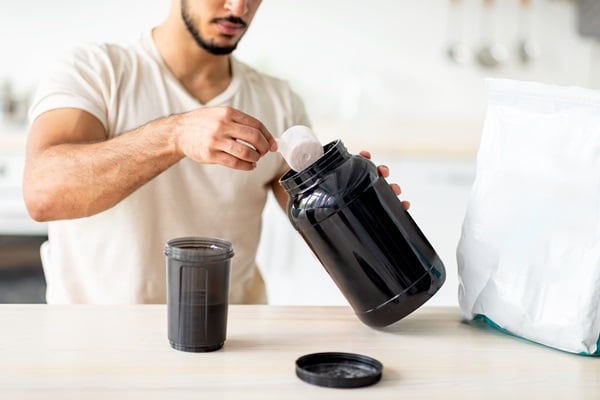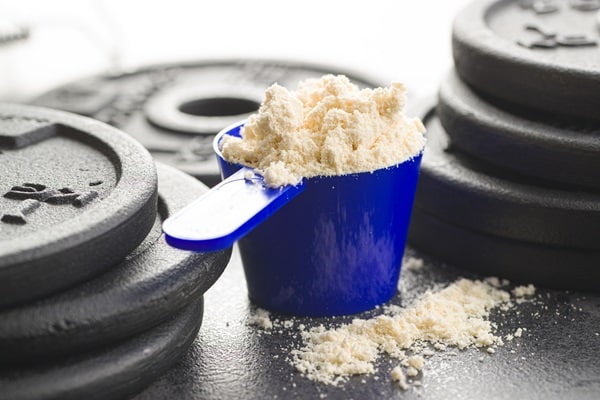Understanding the importance of nutrition before and after workouts is a key component of any fitness routine. It is the backbone to achieving overall health, boosting physical performance, and enhancing recovery. The right balance of macronutrients can fuel your workouts, build strength, and facilitate muscle recovery. This guide aims to break down the essential elements of pre and post-workout nutrition and debunk common myths, providing actionable strategies to optimize your health and fitness journey. Whether you’re a seasoned athlete or a fitness newcomer, the information provided will help you make informed choices about your workout nutrition.
Contents
- 1 The Science Of Workout Nutrition
- 2 Importance Of Hydration
- 3 Pre-Workout Nutrition
- 4 Supplements To Boost Performance
- 5 Post-Workout Nutrition
- 6 Role Of Micronutrients In Recovery
- 7 Post-Workout Supplements To Aid Recovery
- 8 Common Myths About Workout Nutrition
- 9 Get The Most Out Of Your Pre and Post-Workout Nutrition!
The Science Of Workout Nutrition

During physical activity, your body undergoes numerous physiological changes that require an ample supply of energy. The primary sources of this energy come from the macronutrients you consume: carbohydrates, proteins, and fats. Carbohydrates are the body’s preferred energy source, as they break down quickly into glucose, fueling your muscles and brain during a workout. Proteins, on the other hand, aren’t typically used for energy, but they play a crucial role in muscle protein synthesis – the process that enables muscle growth and recovery.
In contrast, fats are a more concentrated energy source but are broken down slower than carbohydrates. While they aren’t the primary fuel for high-intensity workouts, they play a vital role in supporting endurance activities. Understanding how your body utilizes these macronutrients during exercise can help you better plan your pre and post-workout meals, ensuring you’re fueling your body effectively for optimal performance and recovery.
Importance Of Hydration

Hydration should never be overlooked when considering workout nutrition. Water is critical for maintaining bodily functions and plays a major role in both your performance and recovery. During a workout, your body loses fluids through sweat, which, if not replaced, can lead to dehydration. Dehydration can lead to muscle fatigue, decreased coordination, and impaired thermoregulation, ultimately affecting your performance.
To combat this, it is recommended to hydrate before, during, and after exercise. However, the exact amount of water you need can vary based on the duration and intensity of your workout, as well as personal factors like your weight and sweat rate. As a general rule, try to drink 17-20 ounces of water 2-3 hours before your workout, 8 ounces during your warm-up, and 7-10 ounces every 10-20 minutes during the exercise. Post-workout, aim to replace any fluid lost by drinking an additional 16-24 ounces for every pound lost during the workout.
Pre-Workout Nutrition

When it comes to pre-workout nutrition, the goal is to provide your body with the necessary fuel to perform at its best. This generally means consuming a meal or snack rich in carbohydrates and protein. Carbohydrates provide your muscles with the glycogen they need to power through your workout. Without adequate carbohydrate intake, your body may start to break down muscle tissue for energy, which can hamper your performance and recovery.
While protein might not be your body’s first choice for energy, consuming it before a workout can help reduce muscle protein breakdown and increase synthesis, leading to better muscle recovery and growth. It’s generally recommended to consume your pre-workout meal 1-3 hours before your workout to allow enough time for digestion and absorption. If you’re eating a larger meal, aim for the earlier end of this spectrum; for smaller snacks or shakes, the latter end may be more appropriate.
Supplements To Boost Performance

Pre-workout supplements can serve as a potent tool to enhance your workout performance. Common ingredients in these products include creatine, beta-alanine, and caffeine, all of which have been shown to improve various aspects of performance. For instance, creatine can increase muscle strength and size, improve recovery, and enhance performance in high-intensity workouts. Meanwhile, beta-alanine can help buffer acid in your muscles, reducing fatigue during high-intensity exercise.
Caffeine is another popular pre-workout supplement known for its performance-enhancing effects. It can increase alertness, improve mood, and decrease perceived effort, allowing you to train harder and longer. However, it’s essential to approach pre-workout supplements with caution and use them responsibly. They are meant to supplement a balanced diet, not replace it, and it’s crucial to consider potential side effects and personal tolerance.
Post-Workout Nutrition

After a grueling workout, the body is depleted of glycogen and has experienced a certain degree of muscle breakdown. Hence, the focus of post-workout nutrition is two-fold: replenishing lost glycogen stores and providing the necessary protein to aid in muscle repair and growth. Carbohydrates are vital for replenishing these energy stores, while protein provides the building blocks necessary for muscle repair and growth.
The timing of your post-workout meal matters as well. There’s a period post-workout often referred to as the “anabolic window,” usually within 30 minutes to two hours after your workout, where you prime your muscles to absorb nutrients for recovery and growth. Consuming a mix of proteins and carbohydrates during this time can optimize muscle recovery and glycogen synthesis. However, it’s also important to remember that consistent, balanced nutrition throughout the day can be equally impactful.
Role Of Micronutrients In Recovery

Micronutrients, though required in smaller quantities than macronutrients, play a vital role in muscle recovery and overall health. These include vitamins and minerals, which act as crucial co-factors in numerous metabolic processes. For instance, iron is involved in oxygen transportation to the muscles, while calcium and vitamin D are essential for bone health, which is crucial for any physical activity.
Other essential micronutrients include the B vitamins, which play a critical role in energy production, and antioxidants, like vitamins C and E, which help to combat oxidative stress induced by exercise. Incorporating a variety of fruits, vegetables, lean proteins, and whole grains into your post-workout meals can help ensure you get a broad spectrum of these essential micronutrients.
Post-Workout Supplements To Aid Recovery

In addition to whole foods, certain supplements can help support post-workout recovery. Protein powders, for instance, can be a convenient and effective way to increase your protein intake, particularly if you struggle to consume enough protein from foods. Whey protein is a popular choice due to its high biological value and quick absorption rate, making it ideal for post-workout recovery.
Other supplements, such as glutamine and BCAAs (branched-chain amino acids), may also aid in recovery. Glutamine, an amino acid, can help support immune function and intestinal health, which can be stressed by intense training. BCAAs, on the other hand, can promote muscle protein synthesis and reduce muscle soreness. As always, these supplements should not replace a balanced diet but can complement it when used appropriately.
Common Myths About Workout Nutrition

Workout nutrition is often rife with misconceptions that can cloud the understanding of what’s truly beneficial. One such myth is the need to consume protein immediately after a workout. While it’s true that consuming protein post-workout can support muscle recovery, the concept of an ‘anabolic window’ that closes rapidly post-workout has been largely debunked. Studies suggest that you can still maximize muscle protein synthesis as long as you consume protein within a few hours of working out.
Another common myth is that ‘fat makes you fat.’ This myth has led many to avoid dietary fats, but fats play an essential role in hormone production and absorption of fat-soluble vitamins, among other functions. Moreover, they can provide a substantial source of energy, particularly for longer, lower-intensity workouts. The key is to focus on healthy fats such as avocados, nuts, seeds, and olive oil and incorporate them into your meals in a balanced manner.
Get The Most Out Of Your Pre and Post-Workout Nutrition!
When it comes to workouts both pre and post-workout nutrition, plays a vital role in optimizing performance, promoting recovery, and supporting overall health. From understanding how macronutrients fuel your body to appreciating the role of hydration and micronutrients, every element contributes to a comprehensive approach to fitness nutrition. The key lies in finding the right balance that suits your body, your activities, and your goals. Whether you’re an endurance athlete, a weightlifter, or someone who enjoys regular workouts for overall health, being mindful of your nutritional intake can significantly elevate your fitness journey!


